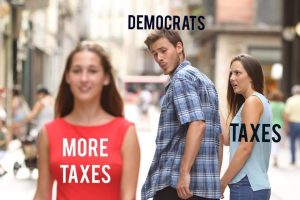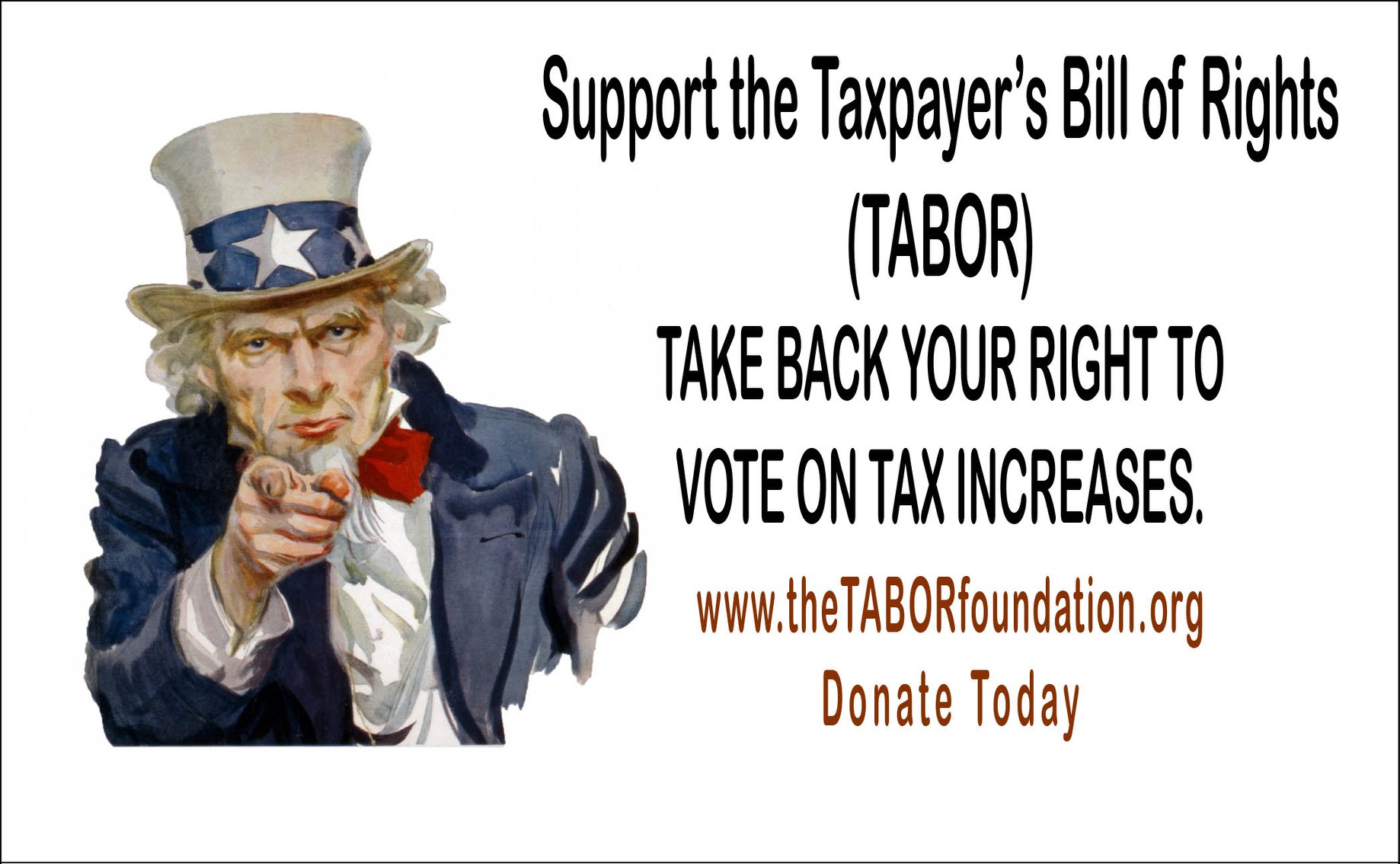New Real Estate Transfer Taxes Are Not Allowed
The Taxpayer’s Bill of Rights includes provisions beyond the required citizen vote on new or higher taxes.
Real estate purchases have much higher values than purchases of consumables. Purchasers of consumables such as household goods and of durable goods such as appliances and cars must pay a sales tax. Governments have looked hungrily at real estate purchases as possible sources of taxation, salivating over taking a portion of the value each time there is a sale.
That’s a bad idea.
Our Colorado Taxpayer’s Bill of Rights is comprehensive enough to prevent any government (“district”) from even proposing to add this type of tax. Because TABOR is written into the state constitution, any government would first have to initiate a statewide vote to overturn this provision before a new tax scheme could even be considered.
There are just a few existing real estate transfer taxes, which were “grandfathered in” upon the 1992 passage of TABOR. There is a trivially small (.0001) statewide tax, mislabeled a “document fee,” for each sale. It was initially imposed just to provide an indication of sale price. There are 12 municipalities that have long-standing transfer taxes, all in the mountains and on the Western Slope. In addition to a prohibition of new transfer taxes, no rate increase is allowed for any existing transfer tax. For more detailed information, follow this link: http://thetaborfoundation.org/colorado-real-estate-transfer-taxes/
Colorado constitution (Article X, Section 20), paragraph 8(a) states: “New or increased transfer tax rates on real property are prohibited.”
The provision was included within the Taxpayer’s Bill of Rights as an additional protection for citizens. A specific real estate sale might go forward in Colorado, when it otherwise might not quite reach the buyer’s threshold with the additional burden of an onerous transfer tax.
 TABOR is a friend to Colorado seniors
TABOR is a friend to Colorado seniors As tax season is upon us, there are several considerations worth examining about how Colorado is doing. Colorado, like most states, faces fiscal challenges arising from COVID and the lockdowns. Colorado has one of the most expensive states for real estate and the recent Gallagher vote could result in higher residential property tax burdens for Coloradans in the years to come. The Colorado state pension system (PERA) has one of the worst funding ratios in the nation, suggesting PERA funding shortfalls will present problems for Colorado taxpayers and PERA beneficiaries in the years to come. Further, a low funding ratio could result in credit rating downgrades leading to higher borrowing costs for the state. Colorado has about 25% of the population on Medicaid. This could present significant challenges for the Colorado taxpayers in years to come. There will be calls for more taxes and fees to meet the desires of the Colorado legislature.
As tax season is upon us, there are several considerations worth examining about how Colorado is doing. Colorado, like most states, faces fiscal challenges arising from COVID and the lockdowns. Colorado has one of the most expensive states for real estate and the recent Gallagher vote could result in higher residential property tax burdens for Coloradans in the years to come. The Colorado state pension system (PERA) has one of the worst funding ratios in the nation, suggesting PERA funding shortfalls will present problems for Colorado taxpayers and PERA beneficiaries in the years to come. Further, a low funding ratio could result in credit rating downgrades leading to higher borrowing costs for the state. Colorado has about 25% of the population on Medicaid. This could present significant challenges for the Colorado taxpayers in years to come. There will be calls for more taxes and fees to meet the desires of the Colorado legislature.

 By: Barry W Poulson
By: Barry W Poulson Blog post by Christine Burtt
Blog post by Christine Burtt